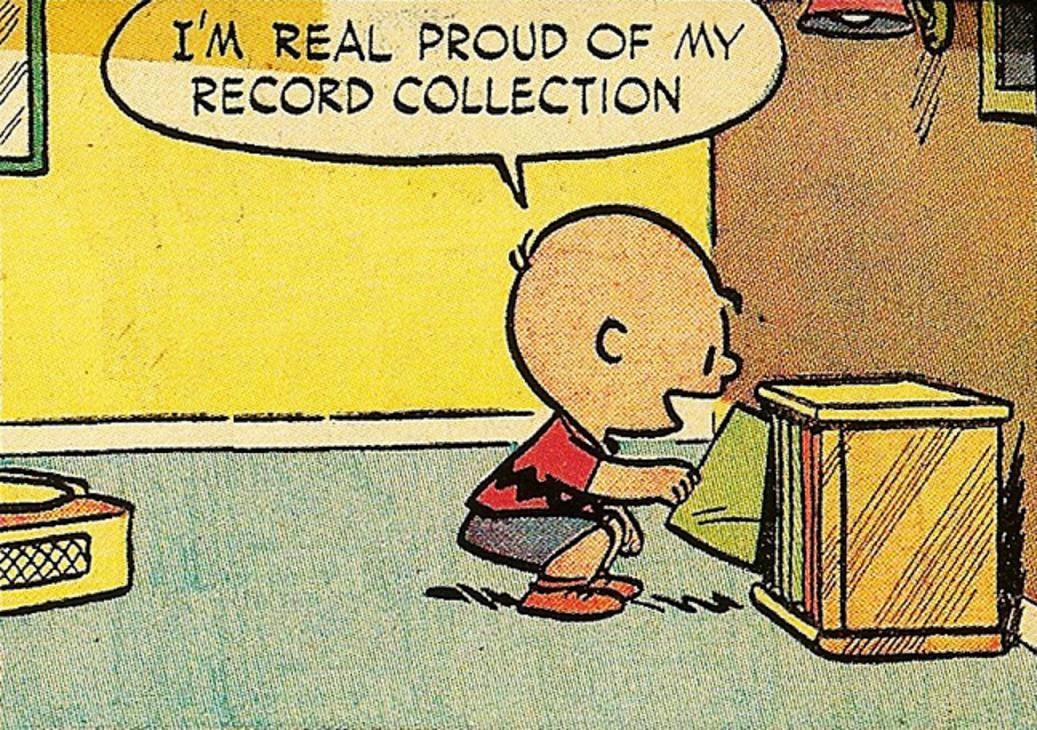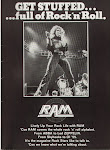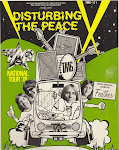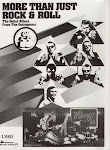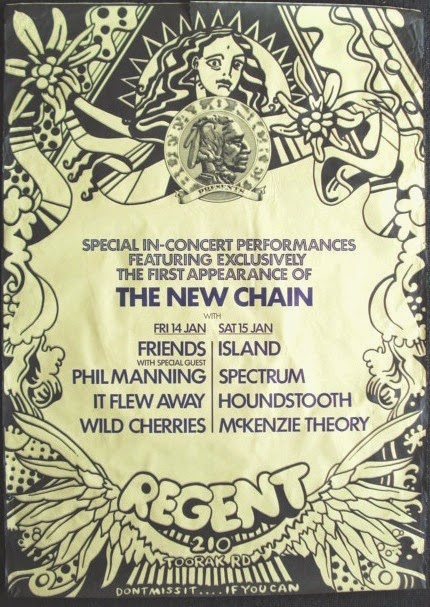(Australian 1968-1977, 1998, 2003)
.

By and large, symphonic rock has not flourished in Australia.
Sebastian Hardie was the country's first and foremost symphonic rock band. During the mid-1970s, the band enjoyed considerable success with the album 'Four Moments', but since that time has been largely forgotten in the land of Oz. Yet in European, Japanese and American progressive rock circles, the highly revered 'Four Moments' and its follow-up 'Windchase' are considered to be classics of the genre.
Graham Ford formed the Sebastian Hardie Blues Band in 1967. The band played R&B and soul covers and experienced several line-up changes. The line-up included Ford, Dennis Laughlin (vocals; later in the original version of Sherbet), Dave Waddington (vocals), Neil Williamson (organ), John Bellamy (bass), Syd Richmond (drums) and Richard Lillico (drums). The Sebastian Hardie Blues Band became Sebastian Hardie in 1968 with the arrival of singer Jon English and the Plavsic brothers. All three musicians were students at Sydney's Cabramatta High School. The band went semi-professional, working the same suburban dance circuit as The Affair, House of Bricks, The Clik and dozens of other Sydney pop bands.

Throughout 1969, Sebastian Hardie worked as backing band for rock'n'roll legend Johnny O'Keefe. At the end of 1971, Sebastian Hardie broke up when English accepted the role of Judas Iscariot in the Australian stage production of the rock musical Jesus Christ Superstar. A year later, Ford and the Plavsics re-formed Sebastian Hardie with Steve Dunne (vocals, keyboards). At that point, the band was still playing pop covers on the dance/club circuit, with little indication of future directions. Visiting English producer Larry Page (Daniel Boone, Kincade) was impressed enough, however, to produce the band's debut single "All Right Now/The Professional" (September 1973), released by RCA. One month after the single appeared, 19-year-old Mario Millo replaced Ford on lead guitar. Millo had been playing the Sydney dance circuit since 1969 with his band The Clik. Millo played on Sebastian Hardie's second single, "Day After Day/Mermaid on the Sand" (April 1974).
By that stage, Millo had begun to write original, highly orchestrated and inventive material which helped usher in a much-needed change of direction for Sebastian Hardie. The catalyst in the band's transformation from accomplished dance-pop band to fully fledged symphonic rock band was the decision to play a 20-minute arrangement of Mike

Oldfield's popular `Tubular Bells'. Polydor Records signed the band on the strength of Millo's new material. The band supported international visitors Lou Reed and Osibisa on their respective Australian tours. At the end of 1974, classically trained musician Toivo Pilt (ex-Forever) replaced Dunne on keyboards and Millo took over lead vocals. Sebastian Hardie upstaged Dutch jazz-rock veterans Focus on their June 1975 Australian tour. With the band's increased profile, the album Four Moments and the single "Rosanna/Openings (edit)" (both August 1975) appeared to strong critical acclaim. The album attained gold status (35000 copies sold) after peaking at #13 on the national album chart; "Rosanna" reached #31.
Featuring seamless, dramatic arrangements and impeccable musicianship, Four Moments revealed the influence of European progressive rock bands like Yes, King Crimson, Genesis and Focus. It contained just three tracks, the side-long, four suite "Four Moments", the sensual, melancholic "Rosanna" and the majestic "Openings". Millo contributed some of his most epic and graceful guitar playing to the instrumental "Openings". Mercury issued Four Moments in the USA and Japan. At the

end of 1975, Sebastian Hardie undertook a very successful 63-date Australian concert tour. The band's second album, Windchase, appeared in February 1976 to coincide with another national tour as support to US band Santana. Like its predecessor, Windchase boasted superb playing and well-crafted progressive rock, but it failed to live up to expectations. It produced the single "Life, Love and Music/Hello Phimistar" (February 1976).
In June 1976, the Plavsic brothers left the band amid a flurry of ill-feeling. Millo and Pilt immediately recruited a new rhythm section consisting of Doug Nethercote (bass; ex-Clockwork Strawberry) and Doug Bligh (drums; by then ex-Stuart & McKay), but a legal wrangle over ownership of the Sebastian Hardie name prevented the band from playing live. Peter Plavsic had registered the name Sebastian Hardie and therefore claimed legal right to its use. Millo argued because it was his music that had established the band's identity he was

entitled to the name. The Plavsic brothers emerged as the successful party in the ensuing court case, and Millo was forced to rename his band Windchase. The brothers never did use the Sebastian Hardie name for their new band as intended. They recruited Graham Wardrop (guitar), John Bushell (guitar) and Rick Mellick (keyboards) in order to back rock'n'roll revival duo The Studs.
Windchase entered the studio during January 1977 to record a new album. Nethercote left halfway through the album session to be replaced by journeyman bass player Duncan McGuire (ex-Doug Parkinson In Focus, King Harvest, Friends, Ayers Rock). By the time the album 'Symphinity' appeared in June, McGuire and Bligh had left to be replaced by the returning Nethercote and Ralph Cooper respectively. 'Symphinity' saw the band moving into heavier jazz-fusion territory (akin to Al Di Meola), but it was not a chart success. It produced the singles "Glad to Be Alive/No Scruples" (May 1977) and "Flight Call/Horsemen to Symphinity" (October). Millo took the band on the road, but in the meantime the

emergent punk and new wave movement had relegated bands like Windchase to the dinosaur scrap heap. Windchase played its last gig to 60 people in a Melbourne pub during October 1977.
Mario Millo went on to work with Jon English on the highly successful Against the Wind soundtrack, before issuing two fine, but neglected, solo albums, Epic III and Human Games. He then embarked on a successful career in television and movie soundtrack production. In 1994, the organisers of the annual US progressive rock gathering ProgFest invited Sebastian Hardie to appear on the bill. Although Millo, Pilt and the Plavsic brothers had not played together since 1976, they flew to Los Angeles in November for the festival. By all accounts, Sebastian Hardie delivered a brilliant set to which the audience responded with a standing ovation.
With overseas interest in Sebastian Hardie still strong throughout the late 1990s, the Avalon label in Japan and the Musea label in France reissued the band's back catalogue on CD. The Japanese reissues of Four Moments and Windchase included a bonus track apiece, "Day after Day" and "Since You Left Me" respectively. The band's live set from the 1994 US ProgFest also finally saw the light of day on CD, as Live in L. A. The Avalon and Musea labels also issued Mario Millo's highly regarded solo album, Epic III, on CD for the first time.
The full Sebastian Hardie / Windchase calalogue is available in CD from
Mario Millo's website, along with his solo ventures.
.
If you are interested in reading interviews conducted with Mario Millo, see
The Progressor and an interview conducted with Sebastian Hardie while they supported
YES on tour in 2003
This compilation album is a mixture of rare Sebastian Hardie tracks (currently unavailable on any official release to the best of my knowledge). T
heir first three singles (thanks to Tom Mix Oz Music) were taken from Vinyl at 256kps, the 1998 live track ripped from YouTube at 256kps and the 2003 Vodaphone live tracks (thanks to Russell Chambers at Midoztouch) ripped from cassette at 128kps - but still excellent quality. Full album artwork is included (adapted from a Rock Legend's vinyl cover). The black & white photos in this posting were sourced from Mario Millo's website (with thanks).
.
Track Listing
01 - All Right Now (Single 1973)
02 - Day After Day (Single 1974)
03 - Mermaid On The Sand (Single 1974)
04 - Horsemen To Symphinity (Mario Millo & Men From Mars Live 1998)
05 - Four Moments (Live at Vodaphone Arena 2003)
06 - Rosanna (Live at Vodaphone Arena 2003)
07 - Openings (Live at Vodaphone Arena 2003)
.
Early Band Members:
 Jon English - Vocals, rhythm guitar
Graham Ford - lead guitar
Peter Plavsic - bass
Alex Plavsic - drums
.
Later Band Members
Jon English - Vocals, rhythm guitar
Graham Ford - lead guitar
Peter Plavsic - bass
Alex Plavsic - drums
.
Later Band Members:
Mario Millo - Guitar, Mandolin, Vocals
Peter Plavsic - Bass Guitar
Alex Plavsic - Drums / Percussion
Toivo Pilt - Keyboards
.
Sebastian Hardie Link (82Mb) New Link 13/11/2019
 Rice Krispies (known as Rice Bubbles in Australia and New Zealand) is a breakfast cereal that was created by Eugene McKay for the Kellogg company, and later marketed by Kellogg's in 1927 and released to the public in 1928. This cereal is widely known and popular with a long advertising history, with the cartoon characters Snap, Crackle, and Pop touting the brand. In 1963, The Rolling Stones recorded a short song for a Rice Krispies television advertisement and is a very obscure recording. .
Rice Krispies (known as Rice Bubbles in Australia and New Zealand) is a breakfast cereal that was created by Eugene McKay for the Kellogg company, and later marketed by Kellogg's in 1927 and released to the public in 1928. This cereal is widely known and popular with a long advertising history, with the cartoon characters Snap, Crackle, and Pop touting the brand. In 1963, The Rolling Stones recorded a short song for a Rice Krispies television advertisement and is a very obscure recording. . the World" on this one. Actually, Brian Jones co-wrote this jingle with the J. Walter Thompson ad agency (who had Rice Krispies as a client) for the princely sum of 400 pounds. It was only shown in the United Kingdom in '64 which is why no one from the States can remember seeing this when it was shown.
the World" on this one. Actually, Brian Jones co-wrote this jingle with the J. Walter Thompson ad agency (who had Rice Krispies as a client) for the princely sum of 400 pounds. It was only shown in the United Kingdom in '64 which is why no one from the States can remember seeing this when it was shown. 

